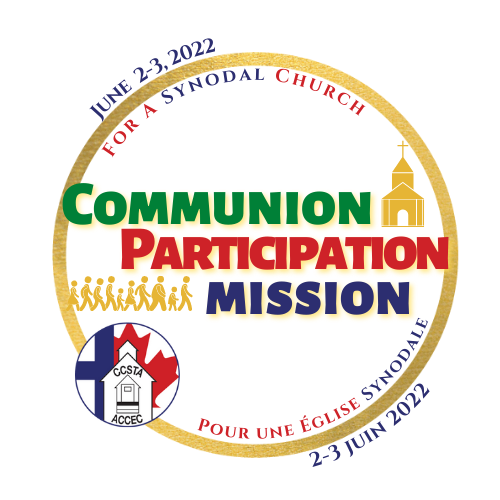“We cannot create a culture of dialogue if we do not have identity.”
Pope Francis
We were delighted to discover that the Congregation of Catholic Education (the office appointed by the Church to govern Catholic Educational Institutions world-wide) released a new document for Catholic Schools in April 2022, entitled,
“The Identity of the Catholic School for a Culture of Dialogue.”
The document opens with an introduction on why this particular topic of Catholic Identity was chosen as necessary for and relevant to Catholic Schools worldwide.
In 2015, the Congregation for Catholic Education invited Catholic School representatives from around the world to join in a discussion of the most relevant issues faced by Catholic schools. At the centre of the feedback from Catholic school communities was the need for “ a clearer awareness and consistency of the Catholic identity of the Church’s educational institutions all over the world.”
Over the next several years, The Congregation of Catholic Education compiled relevant reflections and guidelines to speak specifically to the issues raised by school communities. In April 2022, they released this 23-page document to summarize the feedback received from all over the world and provide practical guidelines for Catholic Schools moving forward
Its Relevance
The topic of Catholic Identity in our schools here in Canada has come to the surface countless times in the last few years. As CCSTA continues to connect Catholic schools across the country, we’re striving to listen to the conversations happening in our schools and school boards. It’s clear that as our culture grows increasingly secular and as faith is removed more and more from society, this question of Catholic Identity in our schools becomes of utmost importance.
Our new Communications plan is aimed at helping to foster dialogue among our CCSTA Members about how to discover and maintain the Catholic Identity of our Canadian Catholic Schools. While our schools are operating under various funding structures, staff capacities and provincial legislations, our schools are called to be distinctly marked as evangelizing missions for the Church. To create a common understanding of what that means in a Catholic School, we necessarily need to facilitate dialogue with all those involved.
This newest document provides an incredible foundation to these discussions.
How do we integrate our faith in our Catholic Schools? How do we accommodate those who feel abandoned by the Church? How do we enter into dialogue with school communities about operating and existing in this current context of culture and society? These important questions are necessary for authentic dialogue.
The Congregation of Catholic Education suggests that the starting point of this dialogue is to first strive to learn and understand our initial calling as Catholic Schools – our Common Catholic Identity – so that we face these questions and enter into dialogue with a common voice to preserve and protect the heart of our Catholic Schools.
Without a clear understanding of what the Church is asking of Catholic Educators and Catholic school communities, we risk losing a unified voice of Catholic Education and the distinctiveness of our schools as evangelizing missions for the Church. Without a unified voice and common understanding of the mission of Catholic Education, our schools become individual entities guided by varying and opposing voices which can lead to a greater disunity and lack of connection to our initial calling from Christ.
The Congregation of Catholic Education exists as a common source for Catholic Schools around the world to find understanding of our Catholic Identity. While there are many incredible leaders and advocates of Catholic Education throughout the world, this specific office is dedicated, by the Church herself, to communicating the common identity of our schools.
Recurring Themes
The first Chapter, entitled, “Catholic Schools in the Mission of the Church” reminds us of the initial mission to which each Catholic School is called. From the very beginning of the Church, the document reminds us, the Church has been involved in educating, forming and teaching as a response to Christ’s call to “Go therefore and make disciples of all nations, baptizing them in the name of the Father and of the Son and of the Holy Spirit, teaching them to observe all that I have commanded you.” Matthew 28: 19-20
In the subsequent two chapters, the point is made abundantly clear that unless everyone involved in Catholic Education understands this initial calling of Christ, as handed down through the Church’s mission and tradition of Catholic Education, we can’t understand how this mission is called to unfold in our current societies and cultures.
The document also creates a clear path for us to understand that our Catholic Identity is not something which makes our schools close in on themselves. On the contrary, the document explains in its third Chapter, “Catholic Identity should be a place of encounter, a tool promoting the convergence of ideas and actions.”
From beginning to end, the themes of unity, listening, discernment and peace guide each point made. These themes tie directly into Pope Francis’ ongoing invitation to Catholics to enter into a “Synodal Church” of dialogue and discussion. Over the past several years, Pope Francis has been inviting us to be a “listening” Church and to be involved in the ongoing, world-wide conversations about our Church’s mission.
How can we participate?
Through this document and the work of the Synod, it’s clear that the Holy Spirit is leading all of those involved in the Church into community and conversation. May we have the courage to respond generously to this prompting so that we can learn and discern together how to lead our Catholic Schools into the future with a clear understanding of our mission and identity.
We encourage our members to take the time to read and discuss this important document.
As we move forward in discussions of protecting and preserving our Catholic Schools in Canada, this document can serve as an essential tool for guidance and direction and helps us understand how we can connect our mission and goals here in Canada with the world-wide mission of Catholic Education.

Our upcoming AGM has taken the Synod as its theme and we’re looking forward to exploring all that it means for those working in Catholic Education.
Our hope is that this AGM will be an opportunity to be encouraged in our work together as Catholic Educators, that members will be inspired to face present difficulties with discernment and peace and that it will be a space for us to support one another in this mission of Catholic Education.
Categories:


Leave a comment